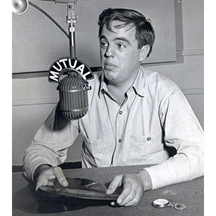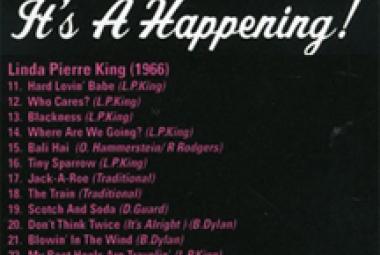Alan Lomax (January 31, 1915 – July 19, 2002) was an American ethnomusicologist, best known for his numerous field recordings of folk music of the 20th century. He was also a musician himself, as well as a folklorist, archivist, writer, scholar, political activist, oral historian, and film-maker. Lomax produced recordings, concerts, and radio shows in the US and in England, which played an important role in preserving folk music traditions in both countries, and helped start both the American and British folk revivals of the 1940s, 1950s and early 1960s. He collected material first with his father, folklorist and collector John A. Lomax, and later alone and with others, Lomax recorded thousands of songs and interviews for the Archive of American Folk Song, of which he was the director, at the Library of Congress on aluminum and acetate discs. Lomax’s greatest legacy is in preserving and publishing recordings of musicians in many folk and blues traditions around the US and Europe. (More from Wikipedia)
The most famous music folklorists are in the Lomax family, specifically, John A. Lomax and his son Alan Lomax – Allmusic calls the latter man “a vastly influential ethnomusicologist, archivist, and field recorder who, by capturing the sound of rural America, begat the folk boom”.
Old songs were often not written down but rather transmitted person to person as one learned the tune and words from another. Songs that were performed throughout a nation or region might be handed down for generations; however, lesser known songs might be performed only among a few family members or a handful of friends and could easily be lost.
* * *
John A. Lomax fell onto hard times, losing his teaching position and suffering from poor health that was compounded by the death of his wife. Allmusic notes that his son John Lomax, Jr. encouraged his father to go on a lecture tour to revive his spirits. Beginning in 1933, this led to his being commissioned by the Library of Congress – together with another son, Alan Lomax – to tour rural America with a traveling recording machine that weighed 315 pounds.
Benjamin Filene wrote of their work in his book Romancing the Folk: Public Memory & American Roots Music: “Over the next decade, John Sr. [John A. Lomax] and Alan [Lomax] would travel tens of thousands of miles and make thousands of recordings. They did so not with the detachment of academics but with the zeal of proselytizers.”
* * *
During their first 16,000-mile trip to the South over just four months, John A. Lomax and Alan Lomax found Huddie Ledbetter in a Louisiana prison, who became known as Lead Belly or Leadbelly. The liner notes on the album of his that I have said: “Leadbelly is the hard name of a hard man”. The Lomaxes promoted him as an authentic American folksinger, and two of his songs rank high in the folk pantheon: “Goodnight Irene” was a big hit in 1950 for the early folksinging group the Weavers (whose members included Pete Seeger), and the country-blues song “Midnight Special” became the name and also the theme song of a popular musical variety program, The Midnight Special which ran from 1972 to 1981. The latter song was attributed by the Lomaxes to Lead Belly (that was the way that Huddie Ledbetter himself used the nickname); though the song is actually much older, Lead Belly apparently supplied several verses of his own to the song. The reference is to a late-night train that would lift the spirits of men in prison as it rolled past.
Over the course of this trip, John A. Lomax and Alan Lomax uncovered hundreds of songs leading to several important books: American Ballads and Folksongs (1934), Negro Folk Songs as Sung by Lead Belly (1936), Cowboy Songs (1937), and Our Singing Country (1938).
* * *
In 1938, Alan Lomax turned to jazz, including eight hours of reminiscences by one of the founders of the musical form, Jelly Roll Morton; and later, blues, prison songs, and other forms of music. One of his recordings, a haunting performance of “Po’ Lazarus” by a black prison chain gang from 1955, was featured in the 2000 film O Brother Where Art Thou. Alan Lomax worked tirelessly for the preservation of music of all types until his death in 2001. He extensively chronicled traditional songs outside the US as well, leading to a 10-disc collection called Folk Songs of Great Britain (1961), as well as field work in Italy, Spain and the West Indies. Lomax hosted several radio programs, and television documentaries followed in later years. In 1993, Alan Lomax published The Land Where the Blues Began, which won a National Book Award. In 2012, the Alan Lomax Sound Archive became available online, offering some 17,000 recordings.
* * *
It pained me in the beginning to learn this about A. P. Carter, but I have gotten over it. Having such an outsized ear for great songs, and then finding and recording these songs for the rest of us is enough even if he never wrote a note of his own. In so doing, A. P. Carter went a step beyond what Alan Lomax was doing in actually arranging and recording these songs by his own singing group.
(February 2015)
* * *
Items: Alan Lomax















